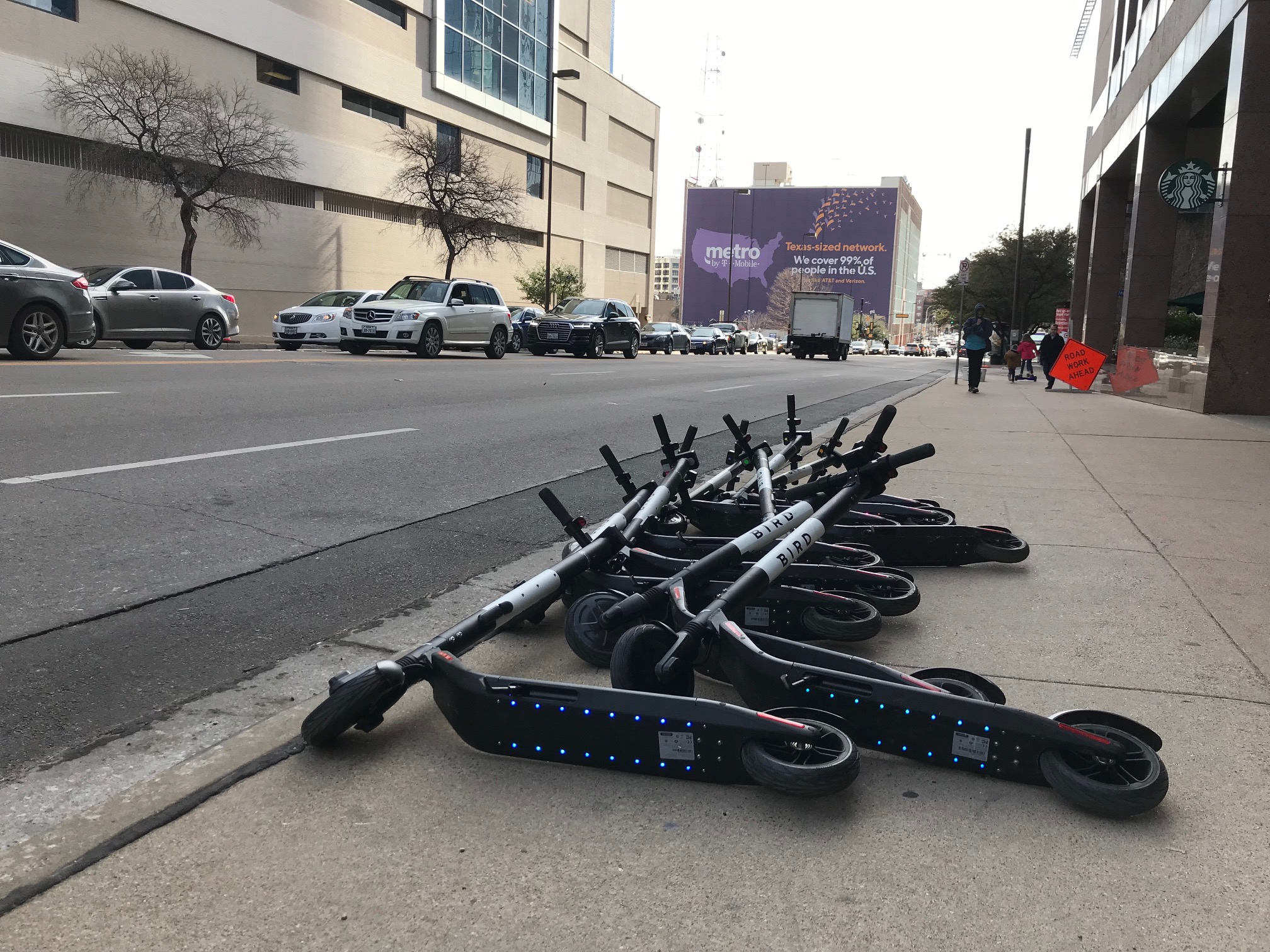An interesting read popped out of CityLab yesterday predicting the future of the electric scooter industry. In mid-February, the city’s Department of Transportation is set to bring to committee the results of haggling with scooter companies over the future of these last-mile rides in Dallas. CityLab gives us a nice, overarching view at the industry at large.
The back and forth over regulations, the threat that companies will flee, the battle to access data—all that is in motion elsewhere, too. And there will be more of it in 2020.
Aside from predictions, however, the piece is a nice roundup of how other cities have dealt with similar issues facing Dallas. As a reminder, Dallas has extended a year-long pilot program, that would’ve ended in November, for four months. In this way, we are a little behind. CityLab:
Which meant that 2019 was the year of city regulations, permitting schemes, and outright prohibitions. Cities have employed a range of strategies to rein in scooter chaos. In L.A., for example, scooter companies must comport with a complicated (and contentious) set of data-sharing requirements, as well as certain safety and fleet size standards, to secure permits to operate. Year-long pilot programs in both San Francisco and Washington, D.C. concluded with multiple companies getting cut from those markets, with Skip getting the boot in S.F. and Bird, Lime, Bolt, and Razor kicked out of the District. Nashville, Denver, and San Diego all issued temporary bans; scooters still have never been legal in New York City.
In Dallas, some of the heaviest regulation could come from increased fees—a new, dollar-a-day-per-scooter fee structure, up from $21 a year per scooter. Compare that to a high-level analysis of the industry, and you’ll find tension. Lime bled $300 million last year, including a first quarter loss of $100 million compared to revenue of $15 million. Lime, Lyft, and Jump each made cuts in 2019, and David Zipper, a visiting fellow at Harvard’s Taubman Center for State and Local Government, tells CityLab that some smaller and more spread-out cities could be scooterless by year-end.
Data sharing is key here, and it’s notably the subject of a legal battle in Los Angeles, where Uber’s scooter company Jump claims sharing granular data with the city “is a kind of government surveillance.” In Dallas, the transportation department has said it wants data in real-time so that it can better enforce creative safety solutions that slow the scooters or bar them outright. It says it would ticket the operators, not the consumers, and doesn’t need the data to ID riders.
City staff got its four-month extension to keep negotiations going, but it will be interesting to see whether it’s enough time to land on regulations that appease operators. Much more to consider in that CityLab piece—give it a look.





